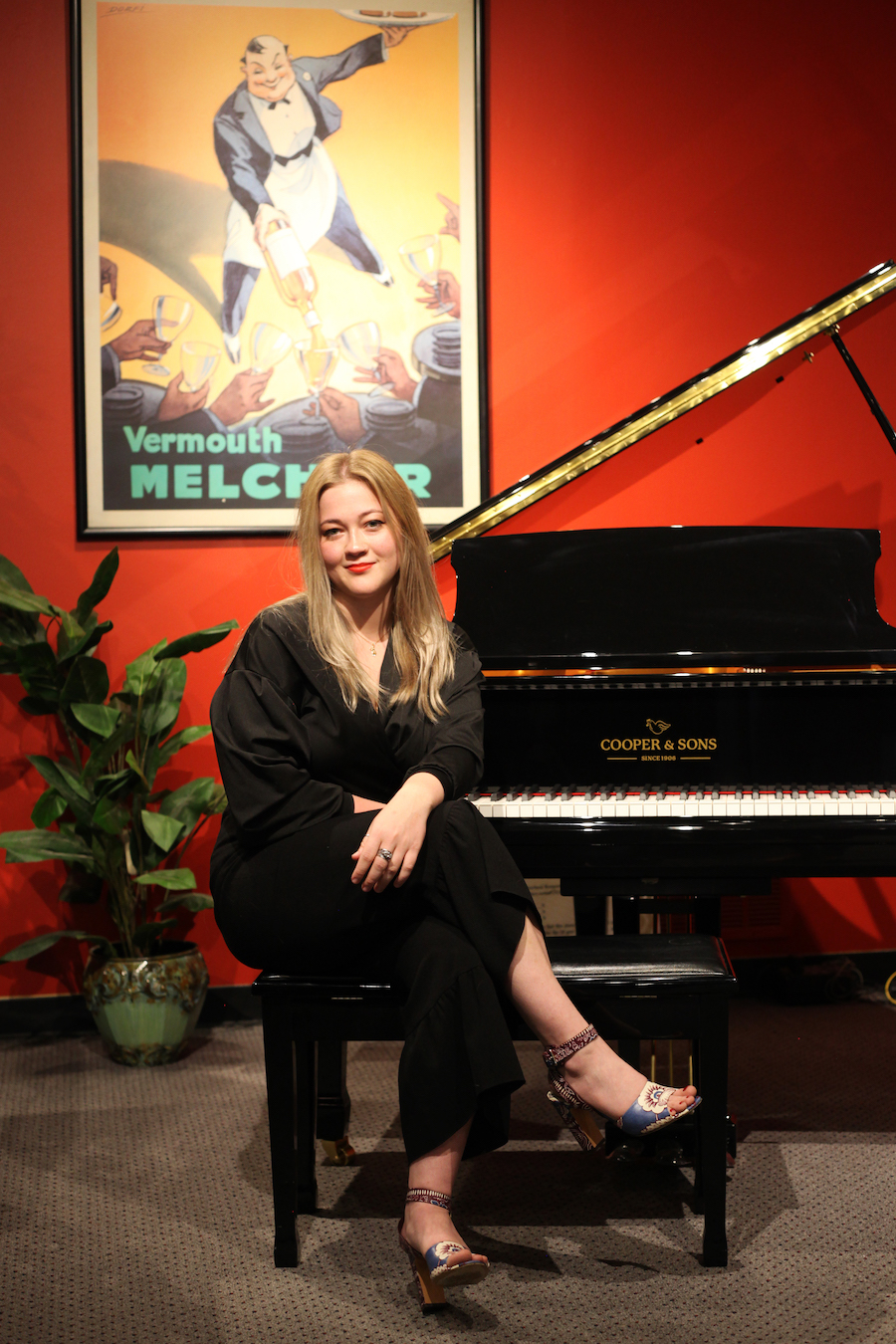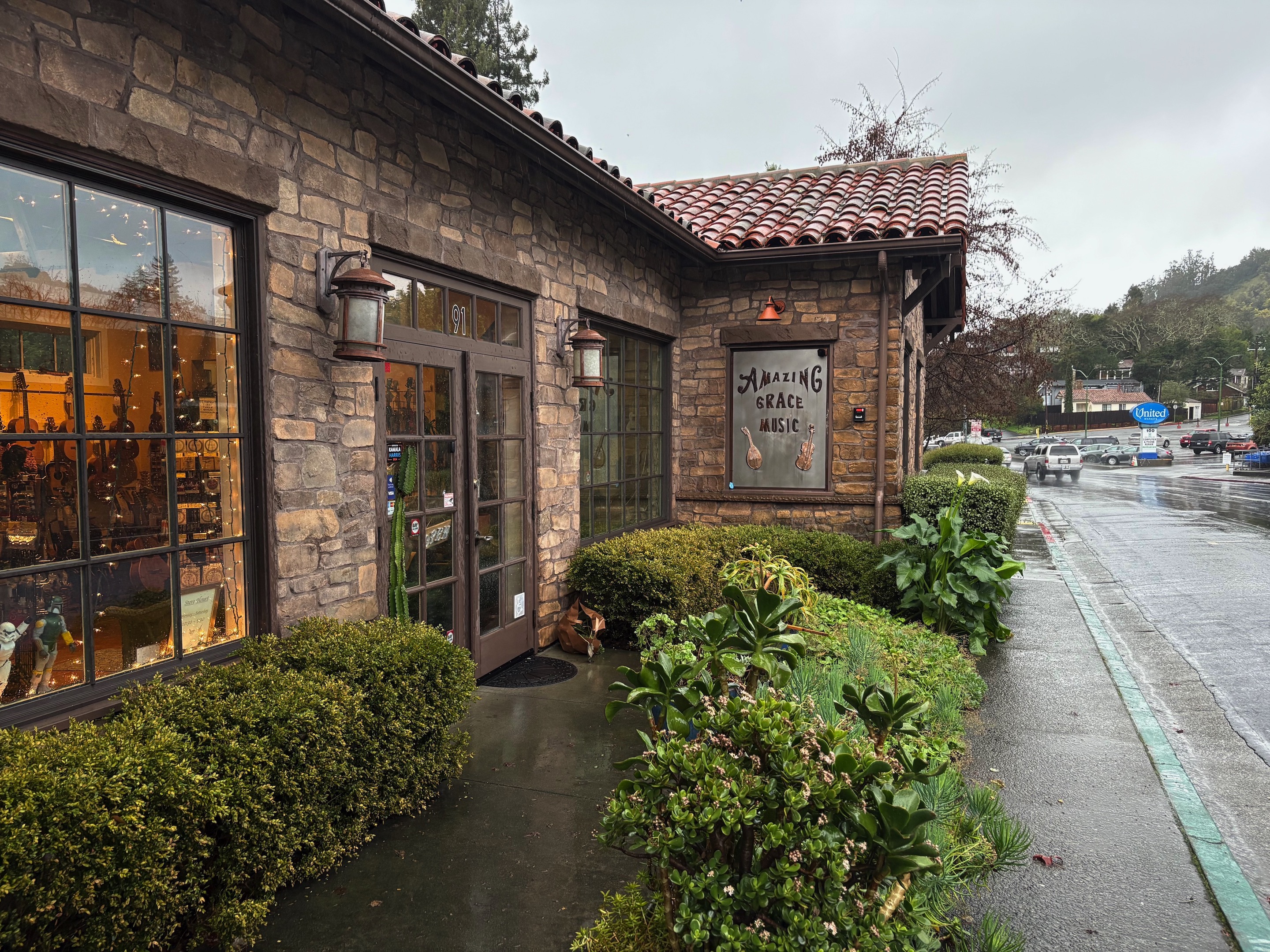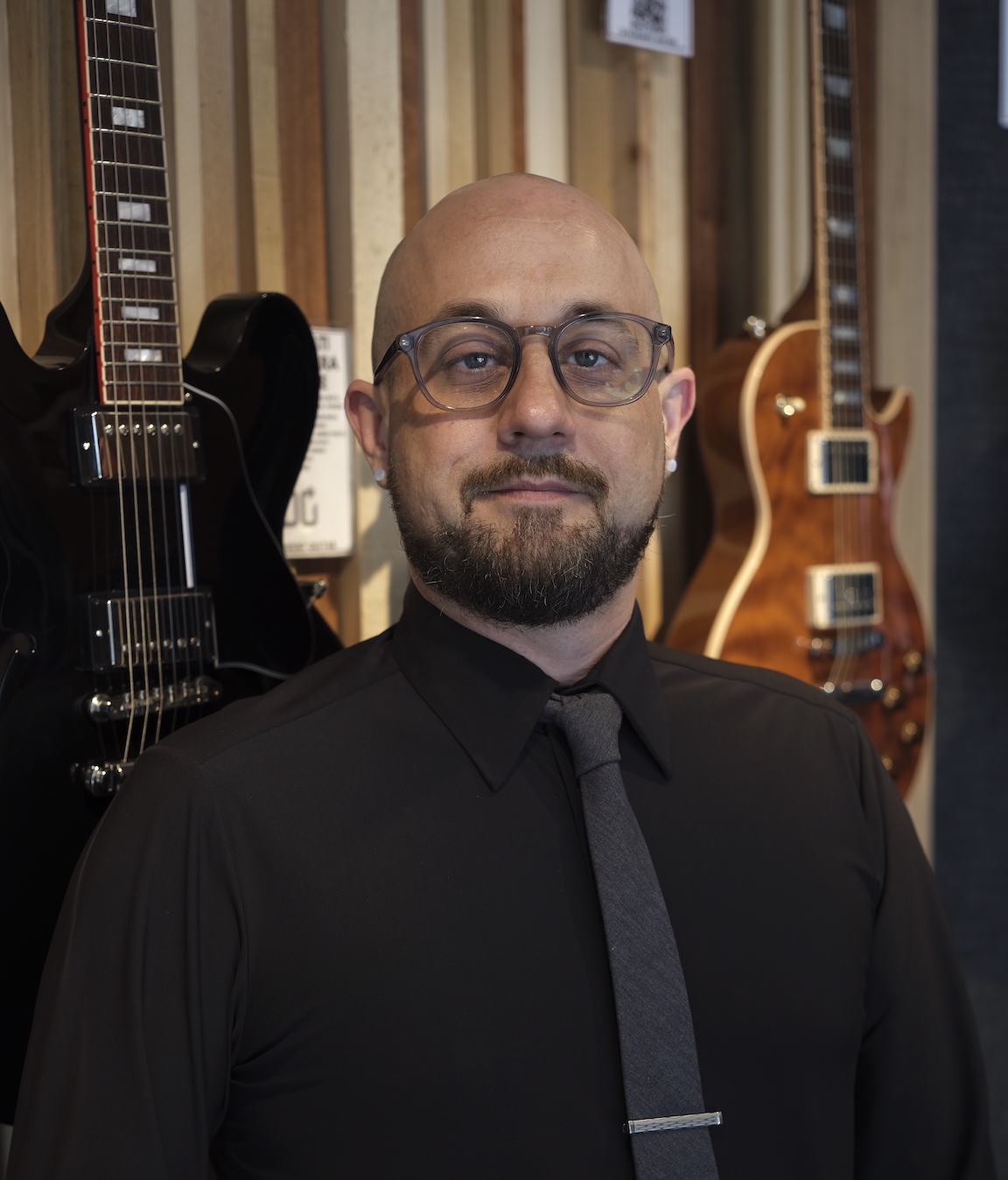
Cooper Piano’s Laura Cooper
Over a year into the pandemic, vaccine or not, many people are still quarantining, and the MI sales boom this inspired is still in place. Most of the attention around this boom focused on instruments and gear easy to get into people’s homes and play or use quietly — guitars, keyboards, podcasting equipment … But a much more cumbersome to ship and install, and thus seemingly unlikely to sell, instrument is performing very well in this situation: acoustic pianos.
It’s a trend people started noticing widely three months into COVID-19’s shut down of the U.S. A June 29, 2020, New York Times article looking into the trend was headlined simply, “Concerts Disappeared. Piano Sales Survived.” Some piano dealers have done more than that — they’ve thrived.
Dan Shykind, who co-owns Downtown Piano Works, a piano dealer in Frederick, Maryland, with his wife Theresa Shykind, is one such dealer. “We had a record year in 2020,” Shykind said. “We had a bit of a slowdown in February and then all hell broke loose. What happens in our business is that you have strong retail sales throughout the year and then June and July come along and retail drops off a bit. This year, all bets were off. Retail stayed completely robust and institutional sales were robust.”
How robust? Considerably. Shykind reported more than 15% growth year over year for 2020, with Downtown Piano Works selling roughly a piano a day, totaling out between 300 to 400 for the year. What’s more impressive is how far ahead the Shykinds already were in speaking with Music Inc. in early March.
“Last year was a record year,” Shykind said. “As of yesterday, we are equal, just in units, to where we were at the end of May in 2020.”
So it looks like Downtown Piano Works is set to top itself. How do they do it? Well, one large factor is that the Shykinds aren’t intimidated by economic downturns, having originally opened in the middle of one in August 2008. “It was surprising to a lot of people that we were opening a piano shop in the worst economy, but it was a great time to open a business,” he said. “You could negotiate everything at the time, from leases to terms, things like that. And it forced us to run very thin.”
Theresa Shykind elaborated on this formative experience. “It seemed like the smartest time to invest,” she said. “If you are creative and work hard, sometimes those opportunities when things slow down [are] when you can get the most accomplished.”
Located roughly 50 miles north of Washington, D.C., and roughly 60 miles west of Baltimore, Downtown Piano Works boasts a 3,200-square-foot showroom and a 1,200-square-foot warehouse. The staff is pretty much just Dan and Theresa, augmented by a part-time salesperson and six teachers. The store is all Yamaha, which Dan asserted gives them a distinct advantage. “It’s no different than the Apple store, because people will come to see a huge breadth and depth of the line,” he said.
Downtown Piano Works has also been directly involved with the music community, having given 160 concerts since opening. “We [would] get 75 people in at least once a month, pre-pandemic, to hear some of the most famous pianists in the world, and it’s free,” he said. “The people that we get are people that you’d see at Lincoln Center or Carnegie Hall or the Kennedy Center. So it’s very different to hear somebody that normally would be a speck 50 feet away from you or more, up close, really no more than, say, 20 feet away.” These pianists include names such as Leon Fleisher, Jonathan Biss, Shai Wosner, Alexander Kobrin and Alon Goldstein. Over a dozen of these performances were broadcast by PBS station WETA’s show “Front Row Washington.”
“Bringing really high-quality music free to the community is important,” Theresa said. “Those concerts really have given the opportunity for people to experience classical music in a way that it’s not normally experienced, especially with the level of performers that are playing. We’ve even had a performance where every audience member had purchased a piano from us, including the artist who was playing.”
The Amazon Effect
Asked what tip he would give other acoustic piano retailers to ensure sales, Dan quickly pointed to one thing — responsiveness. “People are extraordinarily impatient these days,” he said. “Amazon proved a couple of things. One, that you can give incredible customer service at a great price, and two, that you can be responsive 24/7. If you have voicemail in your business, you’re losing customers. Much to my wife’s chagrin, I’ll answer the phone at 11 p.m.”
Another factor, inspired in part by the pandemic, that Dan pointed to that drives sales is meeting your customers when they want to meet you. Dan says Downtown Piano Works will never open its doors for standard retail hours again. The store is now open 9 a.m. to 9 p.m., by appointment only. “We found retail hours, which have been around for a century or more, they’re made for stay-at-home parents and retirees,” he said. “They really don’t cater to our customer. They force our customer to adopt their lives to meet our hours. We’d have six or seven families every Saturday and Sunday buying pianos and it was invariably over a three-hour period and they were all in there together, and it really is hard to sell pianos that way.”
Thomas Solich, owner of Solich Piano in Columbus and Cleveland, Ohio, also an all-Yamaha dealer, agrees that the key to selling pianos during the pandemic has been meeting the customer however they want to access you. When quarantine began, he was worried. “For acoustic pianos, you might think that’s going to be challenging, right? Because there is definitely a touch-feel here, immersed in the acoustic piano,” he said.
In response, Solich Piano went virtual, and forget getting on Zoom, it went on everything. “We had our salespeople put every conferencing system on their iPhones,” Solich said. “So FaceTime, Skype, Zoom, Teams, WebEx…”
This worked. “We sold 43 percent more acoustic pianos from March through June 2020 then we did March through June 2019,” Solich said. “We didn’t expect it at all. We thought we were going to sell 43 percent less.”
Cooper Piano in Atlanta is another piano dealer that weathered the coronavirus well — in fact the store placed in Music Inc.’s 2020 Retail Excellence Awards. Speaking to Music Inc. on March 11, the one-year anniversary of the World Health Organization declaring COVID-19 a global pandemic, Laura Cooper shared that over the past year the store sold 548 units, a 20% increase YOY.
“At first I was definitely surprised because we were all really nervous [about] how something like this would affect the piano industry, just because people kind of look at this as a luxury item,” Cooper said. “There was definitely some nerves [about how] people might want to be saving their money, because they don’t know how long this is going to last. So the last thing they want to spend it on is something that’s not a necessity.”
What Cooper realized is that the acoustic piano customer may be, to some degree, insulated from a recession. “The people who have acoustic piano money aren’t as affected throughout this pandemic,” she said. “The people who have jobs that pay them well enough, they’re just working from home now. So, their financial position or their ability to afford an acoustic piano hasn’t changed.”
Grant Wolach, sales manager at The Piano Place in Troy, Michigan, is another piano dealer who was nervous at the start of pandemic. “I thought, ‘This is going to be devastating,’” he said. “Things were slow enough and sliding downward for such a long time that [I thought] it would just continue that way. Certainly when people started rising out of the woodwork, I was surprised that it was going that way.”
Like many retailers last year, Wolach had to quickly switch up tactics. “At first it was devastating at the beginning of the year when we had to close down and then we had to really turn to alternative methods,” he said. “Being old and archaic, at first I wasn’t into the Facebook and all of the online facilities and marketing and I had to become acquainted with that.”
The Piano Place persisted. Wolach estimates he continued to sell 12 to 15 pianos a month.
Not Enough Containers
Selling acoustic pianos in the pandemic does present certain challenges, some of which directly relate to their size. A guitar purchased online can be delivered contact-free. But you can’t just drop an acoustic piano on someone’s front porch.
Downtown Piano Works teams with a company called Apollo Piano Moving. Its movers take all necessary precautions when entering someone’s home — masks, gloves, etc. — and some of its movers are already vaccinated. But further, the movers are strategic in where they place a piano in a home to minimize contact.
“They will try every way they can to limit the number of stairs,” Dan Shykind said. “They don’t care about outside stairs, but if you see somebody with 15 or 20 inside stairs, we’re going to do everything we can to explain to them that it’s very hard to move a piano up stairs, inside, masked, and you don’t want three guys huffing and puffing in your home. People have been very accommodating putting pianos into places in their homes that don’t require that.”
As in other sectors of MI, acoustic piano does face stocking challenges. Where acoustic piano is stressed the most is on container ships. “The Port of Long Beach that normally you can have turned around within a few days, you have now ships waiting weeks and weeks to get in,” Shykind said.
Acoustic piano suppliers and manufacturers report problems here as well. “One of the things was a big, huge hold-up in Long Beach, California,” said Joe DeFio of Hailun, who reports a 50 percent increase in sales of the company’s acoustic pianos. “They had 5,000 containers stacked up in a lot, and I can’t tell you how many ships anchored. So, getting the stuff to us was slow, because nobody anticipated the amount of business that was going to be done during this period. They actually ran out of containers and so we were waiting for shipments that couldn’t come because there [were] no containers to put the pianos in.”
Chad Schumacher, marketing director with Kawai America, reports that the company’s acoustic piano sales increased by 15 to 20 percent last year and that it faced supply chain challenges in meeting this increased demand — and confirms the problem at ports.
“Kawai was definitely able to provide more of those acoustic pianos, but really the holdup is just right at the port and getting them,” Schumacher said. “It’s just taken longer to get more of our products because of the amount of traffic right now that is at the ports.”
Gary Klugman, director of the keyboard department at Yamaha Corp. of America, says his company is in the same boat. “We’ve seen shipping delays,” he said. “Not enough cargo ships on enough containers, not enough trucks.”
According to Ben Steiner, COO of Steinway Musical Instruments, it’s hard for the company to get anything from Asia right now. “We’re having to pay huge prices for everything that we bring over from Asia,” Steiner said. “Somehow all the shipping containers ended up in the United States, and they never got back to China. So they’re very expensive to secure over there.”
That’s for ocean freight. Not surprisingly, air freight is even worse. “We sometimes have to air freight pianos,” he said. “Air freight charges are 10 times normal right now. It’s insane how expensive it is to send a piano by air freight.”
When she’s ready to take a break from selling pianos, Theresa Shykind is going with something as far afield from them as you can get. She’s ordered a Moog Claravox Centennial theramin from Sweetwater. She said, “I thought it’s the perfect quarantine, COVID instrument because you can’t actually have anything within six feet of the instrument, otherwise it interferes with the signal.” MI












